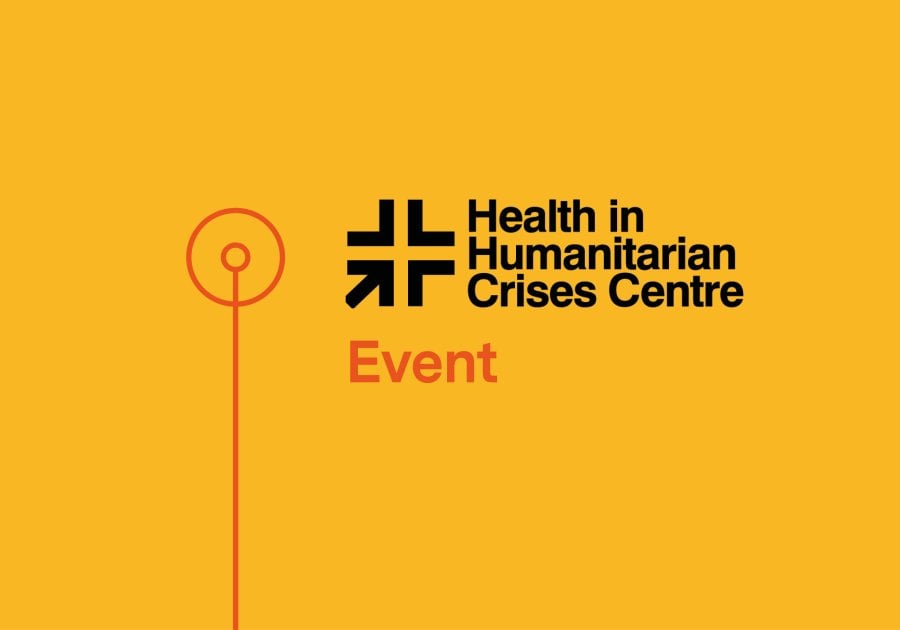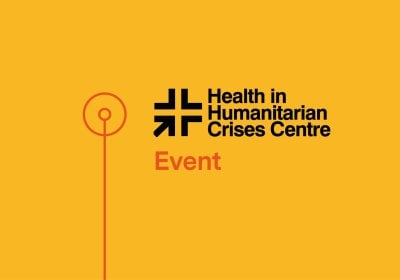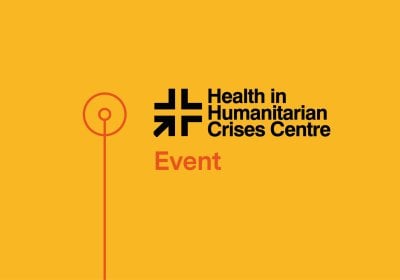Artificial intelligence and the digitalisation of humanitarian assistance?
This panel discussion will explore the increasing role that artificial intelligence is playing in the digitalisation of humanitarian assistance.

The speakers will reflect on the challenges and opportunities posed by artificial intelligence, discussing key examples from crisis settings.
Speakers
- Derek Loots, MSF
Derek Loots gets energy and professional fulfillment from helping companies make their analytics platforms secure, automated and reliable. He has built multiple data analytics platforms, in various industries from real estate to passenger transport. He has an academic background in business but with years of experience in developing Cloud, Data and DevOps solutions he can bridge the gap between Business & IT. He is currently working in the NGO sector for Doctors Without Borders. A complex environment where security and data plays a vital role in providing humanitarian care.
- Britt Titus, International Rescue Committee
Britt leads the behavioral science team at the International Rescue Committee's Airbel Impact Lab, where her team applies behavioral insights to practical issues affecting humanitarian outcomes ranging from women's health, education in emergencies, malnutrition to mental health.
Britt has been working at the intersection of behavioral insights and humanitarian action for the last 5 years and she has previously worked at the United Nations World Food Program (WFP), the Behavioral insights Team, and Nudge Lebanon. In Lebanon, her work focussed on the application of behavioral insights to reduce gender based violence. She has a Master of Public Policy (MPP) from the University of Oxford where she focused on applied behavioral science.
- Bhargavi Rao, LSHTM / MSF
I recently joined LSHTM after 10 years working at Médecins Sans Frontières (Operational Centre Amsterdam), including leading the Emerging and Infectious Diseases portfolio, dividing my time between COVID-19, malaria and other infectious diseases outbreaks. I have worked in humanitarian responses across multiple contexts, and am a public health clinician with a PhD in infectious disease epidemiology.
In my new role, I'm starting to put together a research on malaria and infectious disease control in public health crises and complex emergencies, with a particular interest in zero-dose communities, vaccination and other mass-interventions strategies in crises, as well as surveillance, early-warning systems and anticipatory action (linking disease, climate and conflict).
To keep connected to the operational front-line, I'm continuing in a part-time role at MSF as Clinical Research Lead and malaria/infectious diseases advisor, as well as retaining an honorary clinical position with UKSHA.
- Aleks Berditchevskaia, Principal Researcher, Centre for Collective Intelligence Design, Nesta, UK
Aleks Berditchevskaia is the Principal Researcher at Nesta's Centre for Collective Intelligence Design. She has shaped the research agenda for the Centre over the last 5 years, in particular leading the team's work on AI and collective human intelligence. In 2021 she led a project to develop two humanitarian AI prototypes using a participatory design approach, working in partnership with the Red Cross in Nepal and Cameroon. She is the lead author of the briefing paper 'Participatory AI for humanitarian innovation' and 'Collective crisis intelligence for frontline humanitarian response', an analysis of tools that combine collective intelligence methods like crowdsourcing with machine learning to improve crisis response.
- Monica Wambui Nthiga, Humanitarian Openstreetmap Team
Monica joins Humanitarian OpenStreetMap Team (HOT) as the inaugural Regional Director for the Open Mapping Hub – Eastern and Southern Africa. In this role, she will lead our team in East Africa to help nurture, support and amplify open source communities in about 24 countries in the region. Monica brings a unique blend of experience from working with open data and open source communities and organisations in East Africa.
Prior to joining HOT, Monica worked as Director of Implementation at Ushahidi leading enterprise clients, project and program teams in the use of open-source software for crowdsourcing data in elections and crisis response.
Monica holds a Masters Degree in Economics (Cooperation and Human Development) and a Bachelor’s Degree in Computer Science from Kenyatta University.
- Sheila Burkhardt
Sheila is the Global Digital Strategist at the International Rescue Committee's Airbel Impact Lab. She works in an EdTech team, leading the design and test process of a low-tech chatbot called aprendIA , created to provide access to learning and training experiences to crisis-affected communities in the devices and messaging platforms they have at hand. This is currently being deployed in over 6 countries and over 6 languages.
She is a political scientist with over 14 years of experience understanding what works regarding engagement, interactions, and mobilization between people, with tools, products, or services in digital and analog environments for NGO, public and private sectors.
Event notices
- Please note drinks will be provided after the event.
- Please note that you can join this event in person or you can join the session remotely.
- Please note that the recording link will be listed on this page when available.
Admission
Contact


